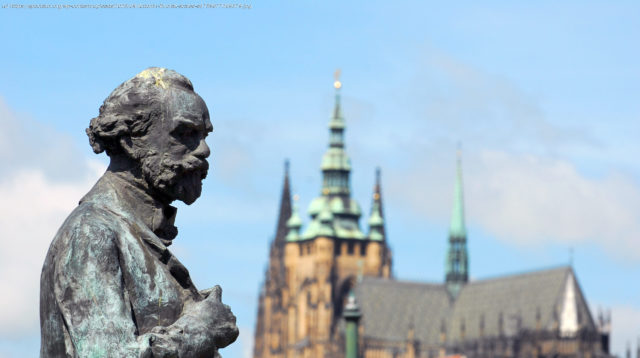“Even divine nature needs its diminuendos and morendos, in order to come to life again and rise up, heading for.Dvořák’s lyric fairy tale once seemed as if it might disappear in a misty haze, but the age-old magic comes to life in a new production.
“Even divine nature needs its diminuendos and morendos, in order to come to life again and rise up, heading for a great crescendo, attaining her strength and stature once more in a mighty ff [fortissimo].” So wrote the Czech composer Antonin Dvořák, in an October 12, 1892 letter to the Kroměříž-based jurist and music connoisseur Emil Kozánek. And much the same goes for works of artistic creation, some of which capture the collective imagination the moment they appear, while others languish in obscurity until a more favorable moment arrives, when they can be resurrected and finally afforded a stature in keeping with their true value.
Only in recent years has Rusalka been recognized for what it is — one of Dvořák’s greatest achievements, shimmering and haunting and at times genuinely sinister.
Placing a crescendo after a diminuendo is an effective way of creating dynamic contrast, resulting in emotional depth and dramatic tension; discovering or resuscitating a lost work of art after years of oblivion similarly results in a sort of dynamic contrast between the past and the present.
There is nothing quite like the thrill of hearing for the first time Wolfgang Amadeus Mozart’s Serenade in C, K. 648 (“Ganz kleinen Nachtmusik”), a delicate and altogether diverting early string trio uncovered just last year in the musical archives of the Leipzig Municipal Libraries. These sorts of out-of-the-blue rediscoveries, like the Mozart serenade, or the Waltz in A Minor by Frédéric Chopin that turned up around the same time in the Morgan Library and Museum, are undeniably exciting. But there is something equally gratifying about a composition that was never lost, strictly speaking, but instead unjustly maligned or woefully under-appreciated, its merits only gradually being recognized over the course of years or decades or centuries, until eventually working its way into the standard repertoire. A slower crescendo, perhaps, but an equally mighty fortissimo in the end.
Take Antonin Dvořák’s Rusalka, an opera (or lyric fairy tale) with an origin every bit as magical as its subject matter. Each summer, Dvořák would retire to his summer home in the village of Vysoká u Příbramě, 50 kilometers or so southwest of Prague, where he composed his folk music-inflected symphonies, concertos, and operas, cared for his beloved pigeons, and cultivated his lush garden, which he “nurtured with great care and loved as God’s divine work,” as he put it in a letter to his publisher Fritz Simrock.
Near his property was a small forest-circled tůnka, a lake, pool, or mere, where Dvořák often sought inspiration, and where he claimed to have encountered a fairy, or perhaps a rusalka, mavka, navka, vila, poludnitsa, or some other Slavic tutelary spirit, floating above the placid waters. This experience resulted in Rusalka, based on a libretto by Jaroslav Kvapil, which tells the tragic tale of a water spirit who falls in love with a human prince, much to the dismay of the goblin Vodník and the foreign princess to whom the prince is betrothed. And to this day, the little tůnka in Vysoká u Příbramě is known as Rusalcino jezirko, “Rusalka’s Pond,” while Dvořák’s summer home has been renamed “Villa Rusalka.”
Rusalka opened to considerable critical and popular acclaim in Prague on March 31, 1901, and was soon beloved in the Czech lands, but it struggled to find its footing abroad, despite featuring a familiar plot (related to Friedrich de la Motte Fouqué’s Undine and Hans Christian Andersen’s The Little Mermaid), a wealth of evocative pictorial musical depictions, a genuinely iconic soprano aria in the form of “Měsíčku na nebi hlubokém,” or “Song to the Moon,” and, in its final section, what the opera critic Max Loppert has called some of “the most glorious minutes in all opera” with their “majestic, almost hymnic solemnity.






